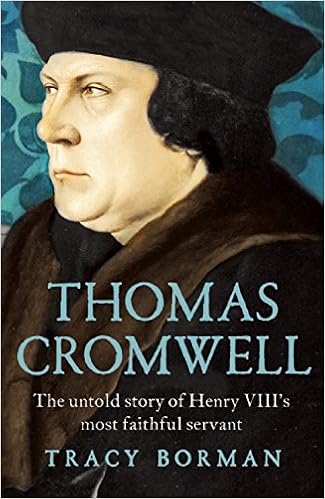
It was no small thing in 16th century England
--to rise from a son of blacksmith to one of the richest men of a rich kingdom
--to escape from being another lean rascal on the streets of Rome to becoming the protegee of king's confidante, Cardinal Wolsey
--to have no formal schooling yet a polymath, to achieve a mastery of oratory, law, business, and finance, becoming a patron of the arts who could hold his own against highest nobility in hunting, the arts, statesmanship and the game of thrones
--to move rapidly from the periphery to the center of Henry VIII's reign
--to manage Henry's pronouncement of adherence to Catholicism and England's independence of the Pope
--to waft Anne of a thousand days to the Queenship, waft her out 18 months later, insert Queen Jane, marry his son to Jane's sister who thus became an uncle (an Uncle!) to the almost deified Prince Edward, Henry's only legitimate son and Jane's child
and
--and despite cunning, perspicacity, loyal servants and a notable private intelligence service, fulfill the saying "The higher you are, the farther you fall."
"Why" is the central question that makes this book so griping. Why did he rise? How did he rule England in all but name during Henry's merrier years? Why did he wind up like his mentor, the great Cardinal? Had Thomas Cromwell not negotiated a wedding with a woman at whom Henry took one appalled look and called "the Flemish mare," might Cromwell have died a wealthy old man rather than meeting a miserable end in the Tower? May be so....
Or maybe not. This wonderful history combines extensive scholarship including new materials with a fine analytic exploration of the whys and what-ifs. "Thomas Cromwell: The Untold Story of Henry VII's most faithful servant" combines the balanced, intense characterizations of a first-rate novel with the depth of a first-rate history.
Tracy Borman is an historian, a scholar, and a writer of five previous books about this period. This shows in every chapter as she traces the arc of Cromwell's life from what's known of his origins (darn little) through what can be said about his young manhood (considerably more) to the trumpets & diapasons of his long & faithful service of his master, the Tudor king.
Any Reader Alerts? This 400 page book is lengthier than page count alone suggests because every page is packed with ideas, analyses, facts, characters. It is not in any way fast food reading. There are about 20 pages of well-chosen illustrations and about 30 pages of notes & references. Sometimes, stories that seem to belong in the text are in the footnotes, so skipping is not advised. (For instance, want to learn what happened to Anne of Cleves, the Flemish mare? See p 435, note 1).
And for some readers, the extensive details on rebellions, dissolution of the abbeys, suppresions and the growing anger against Cromwell that made his fall as swift as it was----well, not much seems to be left out. There are extensive direct quotes, as other reviewers have noted, that may be off-putting to some readers. For me personally, as a commenter has suggested, it helped to read them aloud without fretting o'er much about the spelling differences 400+ years hath wraughtte.
Finally, as a reader alert, this is a history, not a romance or historical fiction. There are other, many other books, that feature Tudor bodices and beds.
But these, to me, are minor points in a magnificent book, a reader's delight, that connects with "Wolf Hall" admirably and extends our understanding of the rise & fall of men, women, the empires they seek to build, and the dynasties they want---so desperately--to endure.
No comments:
Post a Comment